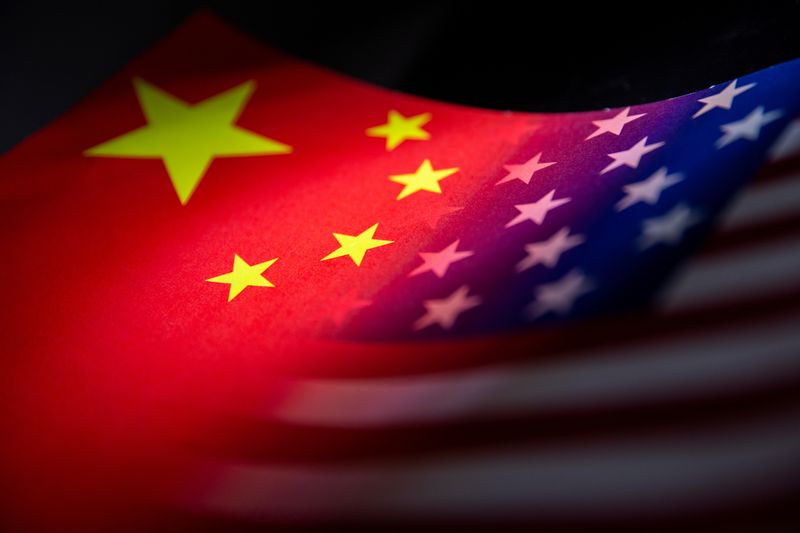SHANGHAI (Reuters) -Chinese regulators and their U.S. counterparts are working hard to solve an audit dispute affecting U.S.-listed Chinese firms and want to achieve effective and sustainable cooperation as soon as possible, a state-run newspaper reported on Sunday.
Citing a source close to Chinese regulators, the official China Securities Journal reported that the China Securities Regulatory Commission (CSRC) heard opinions from some U.S.-listed Chinese companies during an online meeting on Sunday.
"Both Chinese and U.S. regulators are fully aware of each other's concerns, and are moving toward each other, and working hard to find solutions to the issue in order to achieve effective and sustainable cooperation as soon as possible," the source was cited as saying.
"This is in the best interests of the capital markets of both countries and global investors."
CSRC said that the recent talks with U.S. regulators have been efficient, candid, and professional, the newspaper said.
The comments come days after the U.S. public company accounting regulator said that recent media speculation about an imminent deal with China was "premature", and it remained unclear if the Chinese government would grant the access required by a new U.S. listing law.
Washington is demanding complete access to the books of U.S-listed Chinese companies, but Beijing bars foreign inspection of working papers from local accounting firms - a long-simmering auditing dispute that puts hundreds of billions of dollars of U.S. investments at stake.
The Hang Seng Tech Index, which tracks some of China's biggest tech companies including Alibaba (NYSE:BABA) Group Holding Ltd and Baidu Inc (NASDAQ:BIDU), jumped 3.6% on Monday morning, compared with a 1.3% gain in the benchmark index Hang Seng.
SIGNIFICANT DIFFERENCES
But some analysts and investors remain sceptical that a solution will be found.
"Significant differences exist between the US and Chinese regulators," Hao Hong, head of research at BOCOM International, wrote on Monday. "Many US-listed Chinese companies will face delisting eventually."
U.S. regulators require disclosure of government interest in the listed companies, as well as sensitive information and data, while the Chinese government "has been tightening its control on many of China's biggest and most important companies," he added.
To avert the delisting risk, New York-based asset manager Krane Funds Advisors said earlier this month that its $4.9 billion KraneShare CSI China Internet ETF aims to convert all Chinese American Depository Receipts (ADRs) in its portfolio into their Hong Kong shares in the coming months.
Chinese regulators have asked some of the country's U.S.-listed firms, including Alibaba, Baidu and JD (NASDAQ:JD).com, to prepare for more audit disclosures as Beijing steps up efforts to ensure they remain listed in New York, Reuters reported last week.

The Financial Times and Bloomberg News also reported this month that China's securities watchdog is weighing a proposal that would allow U.S. regulators to inspect auditors' working papers for some companies as soon as this year.
CSRC cautioned market participants not to blindly believe in speculation by some media with little knowledge of the details and direction of the talks, as such reports caused unnecessary disturbances to market expectations, the China Securities Journal reported on Sunday.